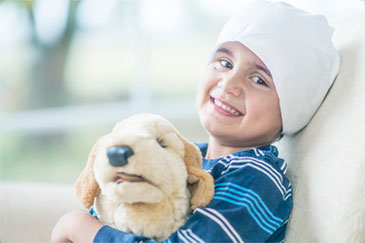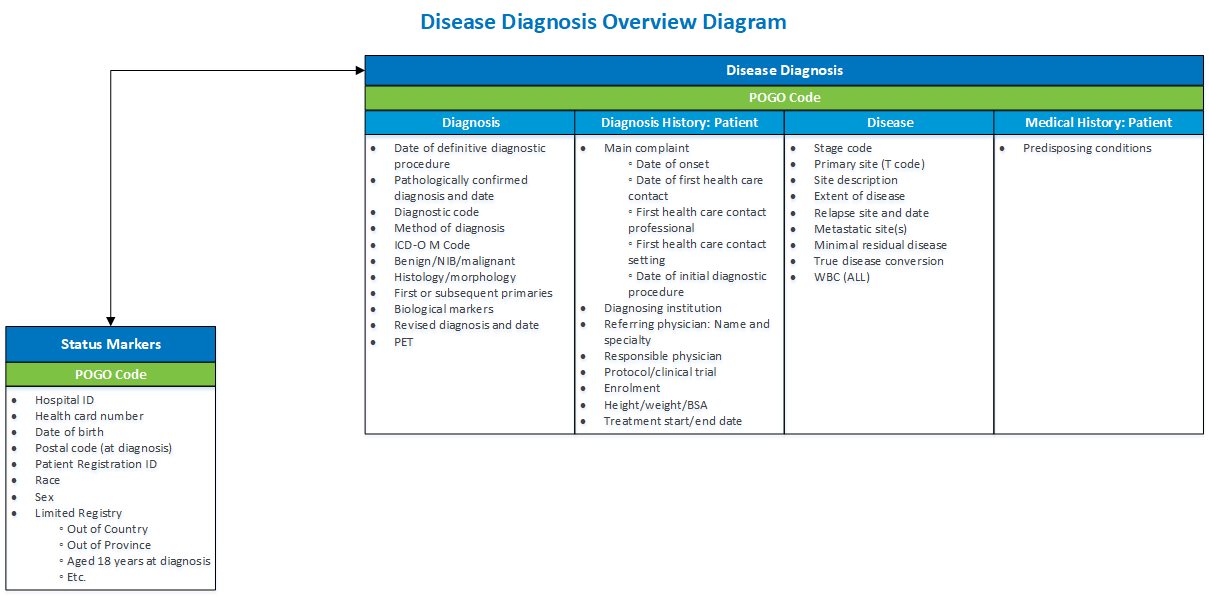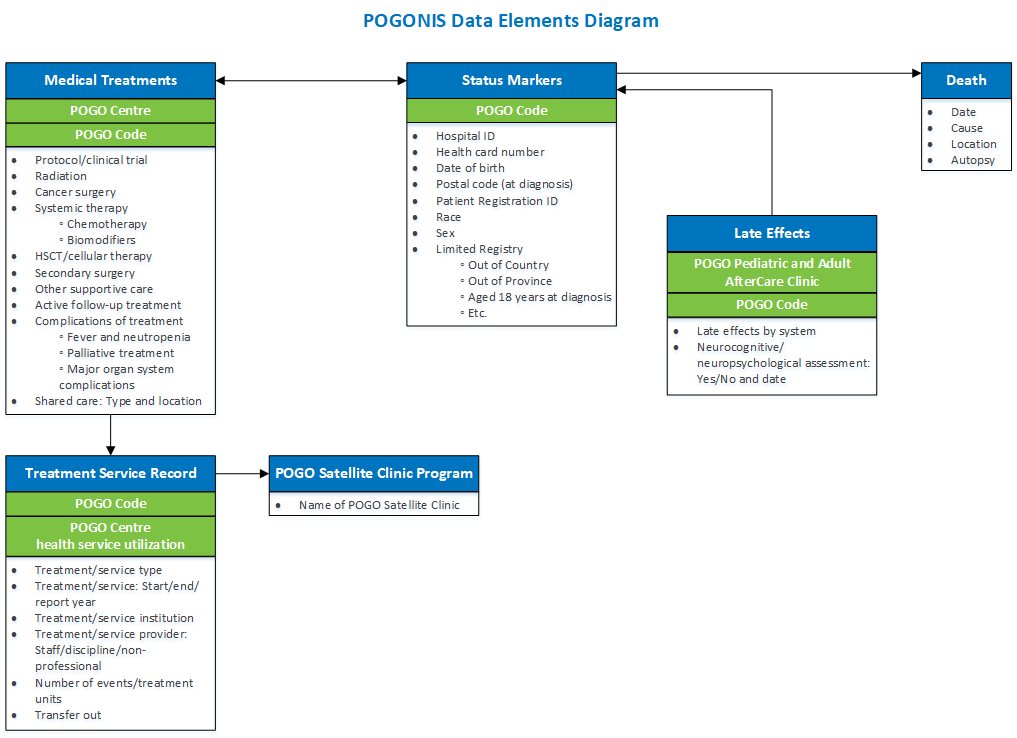Data Anatomy
POGONIS is POGO’s active registry and database on childhood cancer in Ontario. It is a rich source of data, which are available to inform childhood cancer system policy and planning and for research purposes.
POGONIS Data Dictionary
For a copy of the POGONIS Data Dictionary Manual, please contact the POGO Data team.
Disease Diagnosis Overview
Disease Diagnosis Overview Diagram
Status Markers
- POGO Code
- Hospital ID
- Health Card Number
- Date of birth
- Postal code (at diagnosis)
- Patient Registration ID
- Race
- Sex
- Limited Registry
- Out of Country
- Out of Province
- Aged 18 years at diagnosis
- Etc.
Disease Diagnosis
- POGO Code
- Diagnosis
- Date of definitive diagnostic procedure
- Pathologically confirmed diagnosis and date
- Diagnostic code
- Method of diagnosis
- ICD-O M Code
- Benign/NIB/malignant
- Histology/morphology
- First or subsequent primaries
- Biological markers
- Revised diagnosis and date
- PET
- Diagnosis History: Patient
- Main complaint
- Date of onset
- Date of first health care contact
- First health care contact professional
- First health care contact setting
- Date of initial diagnostic procedure
- Diagnosing institution
- Referring physician: Name and speciality
- Responsible physician
- Protocol/clinical trial
- Enrolment
- Height/weight/BSA
- Treatment start/end date
- Main complaint
- Medical History: Patient
- Predisposing conditions
- Disease
- Stage code
- Primary site (T code)
- Site description
- Extent of disease
- Relapse site and date
- Metastatic site(s)
- Minimal residual disease
- True disease conversion
- WBC (ALL)
POGONIS Data Elements
POGONIS Data Elements Diagram
Death Record
- Date
- Cause
- Location
- Autopsy
Medical Treatments
- POGO Centre
- POGO Code
- Protocol/clinical trial
- Radiation
- Cancer surgery
- Systemic therapy
- Chemotherapy
- Biomodifiers
- HSCT/cellular therapy
- Secondary surgery
- Other supportive care
- Active follow-up treatment
- Complications of treatment
- Fever and neutropenia
- Palliative treatment
- Major organ system complications
- Shared care: Type and location
Treatment Service Record
- POGO Code
- POGO Centre health service utilization
- Treatment/service type
- Treatment/service: Start/end/report year
- Treatment/service institution
- Treatment/service provider: Staff/discipline/non-professional
- Number of events/treatment units
- Transfer out
POGO Satellite Clinic Program
- Name of POGO Satellite Clinic
Late Effects
- POGO Pediatric and Adult AfterCare Clinic
- POGO Code
- Late effects by system
- Neurocognitive/neuropsychological assessment: Yes/no and date
Related Articles
How Childhood Cancer Affects the Mental Health of Children and their Families
April 4, 2022
In a podcast for Catch Psychotherapy, POGO Interlink Nurse Tina Hamalainen discusses the…
Survivor’s Childhood Cancer Experience Inspires her Career in Pediatric Oncology Nursing
April 4, 2022
Kafia Ibrahim is a registered nurse whose personal experience as a two-time childhood cancer…
Immigrant Families and the Childhood Cancer Journey
April 4, 2022
Vinesha Ramasamy was 15 years old when she started noticing a lot of swelling and sharp pain in her…
Dr. Ewurabena Simpson Discusses Culturally Respectful Health Care
February 17, 2022
A conversation with POGO Transitions Counsellor Sarah Brandon and her respected colleague Dr.…
Presentations Help Survivors Build Skills
February 17, 2022
The 2022 Survivor to Survivor (S2S) Network presenters have been chosen! The four presenters are…
Advancing Childhood Cancer Care in a Post-COVID World
January 7, 2022
A Synopsis of the 2021 POGO Multidisciplinary Symposium on Childhood Cancer The COVID-19 pandemic…
Key Messages


YOU can be a champion for kids with cancer!
With your help, we will ensure that kids and youth with cancer, their families and survivors of childhood cancer have equitable access to the best care for the best possible outcomes.

